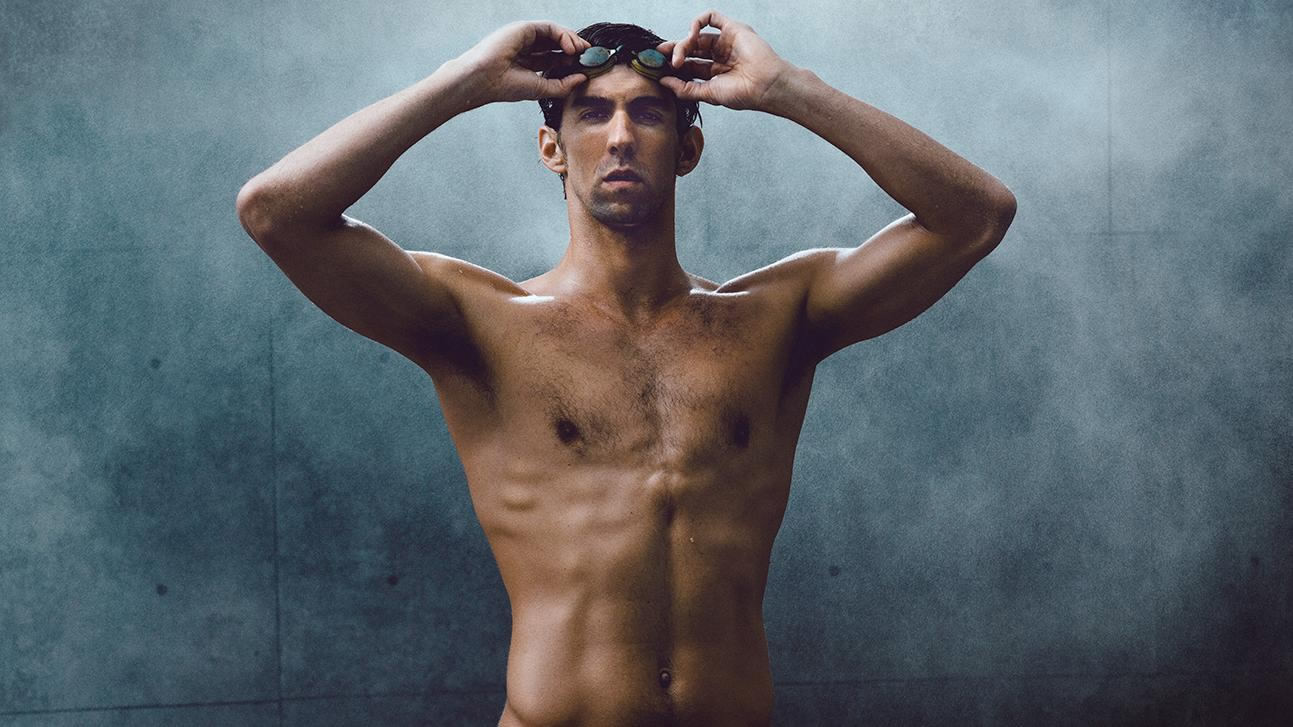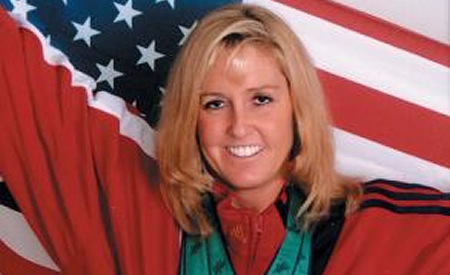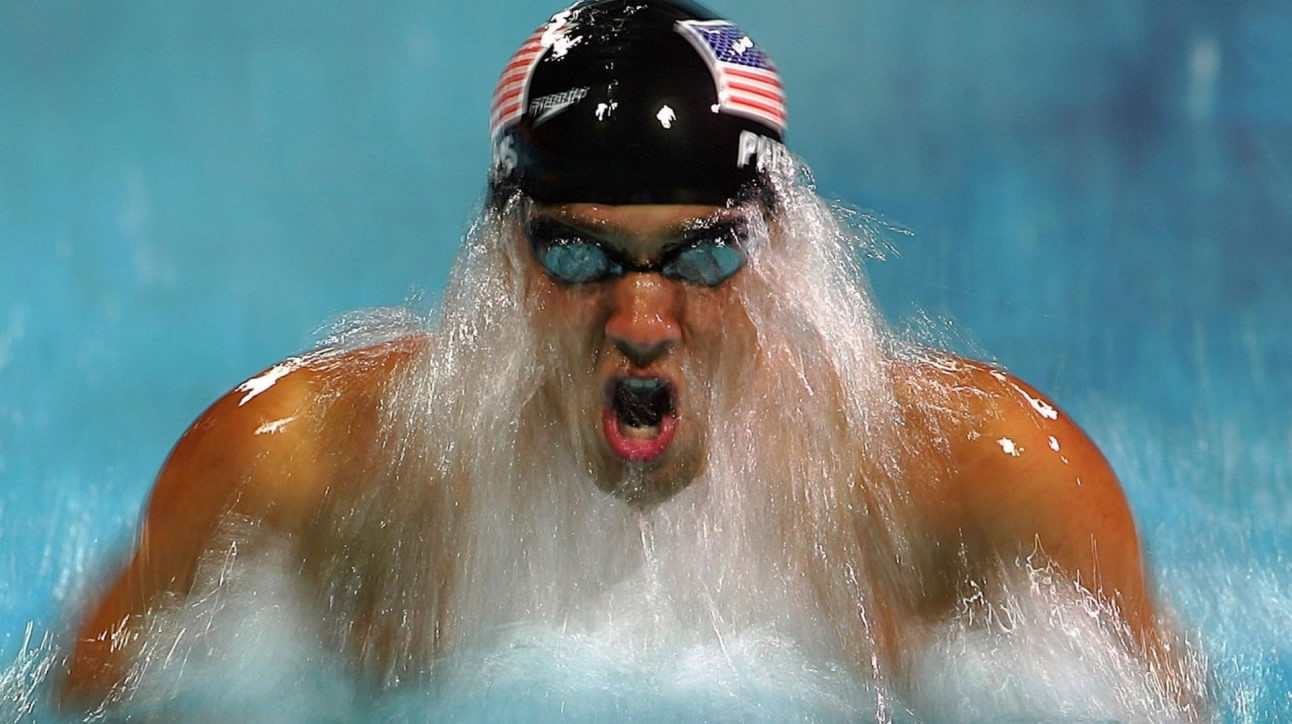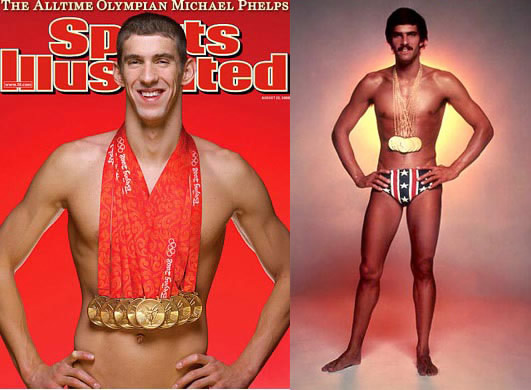
17:55, 07-Aug-2016
Michael Phelps: Rejecting retirement to return for Rio
Updated
10:29, 28-Jun-2018

For many sports fans, the highlight of the Olympic and Paralympic Games has to be when the competition heads poolside, and men and women stand side-by-side amid the palpable excitement of the crowd, preparing to dive in as mere mortals and emerge from the water as legends that will live on forever.
Every Games introduces the world to a new hero or heroine – but it is only once in a generation that a truly legendary Olympian emerges, changing sporting history forever.
American swimmer Mark Spitz won an incredible 7 Olympic gold medals in Munich 1972. Meanwhile for the ladies, Trischa Zorn is the most successful athlete in the history of the Paralympics, having clinched an incredible 55 medals – 41 of which were gold – in the swimming pool for the USA between 1980 and 2004.

Trischa Zorn, winner of 55 Paralympic swimming medals
Trischa Zorn, winner of 55 Paralympic swimming medals
However, no one has changed the sport of swimming as much as Michael Phelps. In terms of medals, world records, image and performance, Phelps is unrivalled. He has won 18 gold medals – twice the amount of his closest rival – and broken an astounding 39 world records over the course of his career, seven of which still stand.
As a young boy, Phelps was diagnosed with ADHD, and took up swimming as a hobby to combat his hyperactivity. He never looked back as he rapidly developed into an impressive swimmer, before becoming the youngest ever American to qualify for an Olympic games at the age of 15 in the 2000 Sydney Games. He finished fifth in the 200-meter butterfly, an impressive achievement considering his age.
Between Sydney 2000 and Athens 2004, Phelps rapidly grew in prowess in the pool, winning six medals including four golds at the 2003 World Championships. Any nerves that may have been on display in Sydney four years earlier were then well and truly obliterated by his achievements in Athens – the 19-year-old Phelps picked up six golds, just one short of Mark Spitz’s haul of seven, a record that had stood since 1972.

Phelps’ success coincided with the downfall of his idol, Ian “Thorpedo” Thorpe, who had blitzed on to the swimming scene in a similar fashion as an 18-year-old at Sydney 2000. However, while Australian Thorpe could not build upon his initial brilliant success as a teenager, Phelps was determined to be the best and maintain an unbeatable level.
Thorpe publicly declared that Phelps would never break Mark Spitz’s record haul of seven gold medals at Munich 1972 – words which spurred the young American on at the Beijing 2008 Games. The tall, wide muscle-bound figure of Phelps perched on the edge of the pool at Beijing’s Water Cube venue caught the imagination of the world, with millions of people cheering him on as he gained eight golds, winning every event he took part in and smashing Spitz’s 36-year record in blistering fashion.

Swimming legends Michael Phelps and Mark Spitz
Swimming legends Michael Phelps and Mark Spitz
Phelps was an overnight icon, the darling of the press and respected worldwide for his prowess in the pool. Media reports of his astonishing fitness regime – including a daily 12,000 calorie breakfast – further enhanced his image of being almost beyond human, an athlete that even his closest rivals could not compare to.
London 2012 saw Phelps continue to prove himself as the world’s best, clinching four goals and two silvers in the pool, before stunning his fans by announcing his retirement from swimming to concentrate on his charity work. However, he clearly could not bear to be away from the pool for long, as he returned in 2014 for the Pan Pacific Championships. Now he declares himself ready for Rio 2016, in what the 30-year-old swears will be his final competitive swimming swansong.

SITEMAP
Copyright © 2018 CGTN. Beijing ICP prepared NO.16065310-3
Copyright © 2018 CGTN. Beijing ICP prepared NO.16065310-3